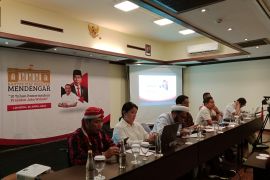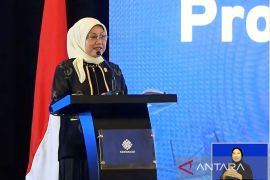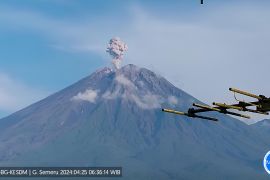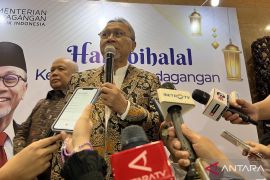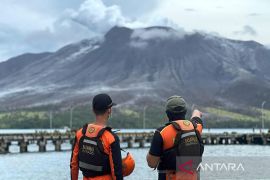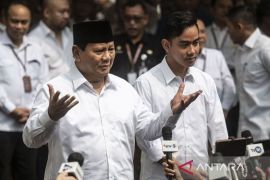"The President conveyed the hope that the GSP facility would not be revoked because 53 percent of items under the facility are products exported by the US, connected with production process needed by the US," Foreign Minister Retno Marsudi said here on Sunday after accompanying President Joko Widodo receiving US state secretary Michael Richard Pompeo at the State Palace.
With the GSP facility the US government imposed zero percent import tax on certain products from developing countries.
US President Donald Trump in April said he studied to review the GSP facility for Indonesia and India because he considered it as causing trade deficit. The program has been carried out since 1976 and stopped in 2013 before it was resumed in June 2015.
Since 2011 Indonesia has been one of the countries that have enjoyed the facility along with India, Thailand, Brazil and South Africa. Especially for Indonesia Trump plans to review as many as 124 products including textile, plywood, cotton and several marine products such as shrimps and crabs.
"We reminded that GSP has not only been enjoyed by Indonesia but also by the two sides. We reexport products that we import from the US to that country and vice versa. So, it is complementary," Trade Minister Enggartiasto Lukito who also accompanied the President at the meeting said.
Lukito visited the US on July 21-28 during which he also met with the United States Trade Representatives ambassador to discuss the review.
In 2017 Indonesia`s products exported to the US using GSP facility were worth US$1.9 billion which was far below those from other GSP recipient countries such as India (US$5.6 billion), Thailand (US$4.2 billion) and Brazil (US$2.5 billion).
Indonesian products that have been exported to the US include rubber tire, automotive wiring equipment, gold, fatty acid, metal jewellry, aluminium, gloves, musical instruments, loudspeakers, keyboard and battery.
President Trump on March 18 also decided to impose 25 percent import tax on steel products and 10 percent on aluminium products. Indonesia`s steel products to the US in 2017 was recorded at US$112.7 million or only 0.3 percent of the US market due to the imposition of countervailing duty that has been carried out for quite a long time.
Indonesia`s aluminium exports to the US were recorded at US$212 million in 2017 or 50 percent of the country`s total exports.
"We have asked for an exemption for aluminum and steel that have suffered 25 percent tax because they on,y comprised 0.24 percent of US imports. Some of the aluminum is used by Boeing. If we imposed a high tariff in it it could make the price of Boeing that we bought to be more expensive. Airbus could be cheaper. So it was noted by secretary of commerce for attention and he has directly asked Boeing to write to the secretary of commerce," Lukito said.
He said however that wether or not the GSP would be revoked it would all depend upon the decision of the US government.
"Once again we would not ask but we would show to them that we are also concerned with the deficit of more than US$709 billion in our trade with them. Actually the GSP benefits both sides. We also encouraged the private sector to also help in the process. If we agree (the value of trade) will increase the GSP facility may help," he said.
Minister Lukito said Indonesia and the US agreed to increase the trade volume from only US$28 billion to US$50 billion.
"US$28 billion is too small and I have proposed to the two sides to increase it to minimally US$50 billion and for us to design the road map for it, it has been responded positively," he said.
He said he has set a target of achieving it in the next two or three years. "We must achieve it in 2-3 years but we must plan it carefully because the two countries have agreed that US$28 billion is too small," he said.
Reported by Desca Lidya Natalia
Edited by Yoseph Haryadi, Andi Abdussalam
Reporter: antara
Editor: Heru Purwanto
Copyright © ANTARA 2018


